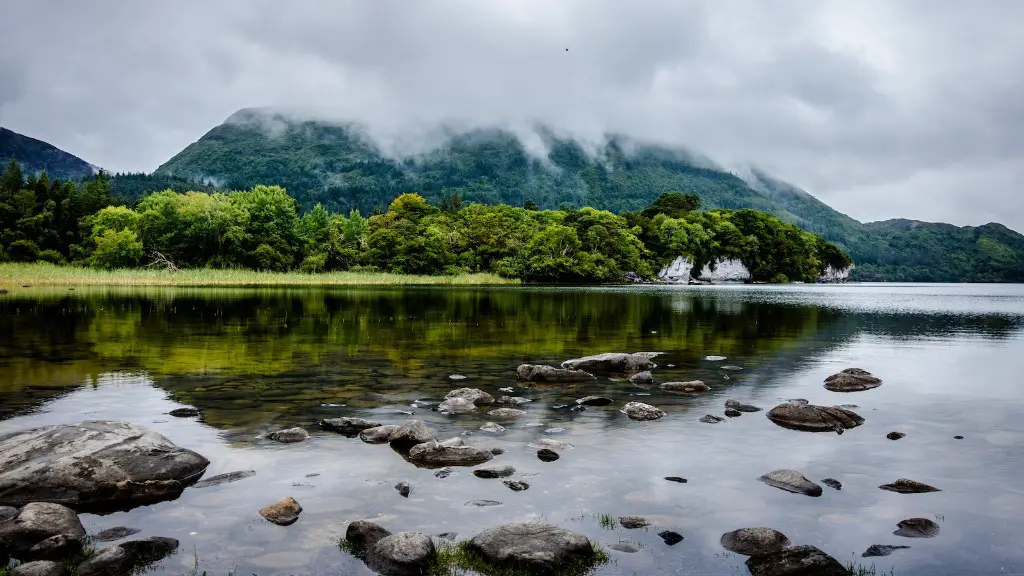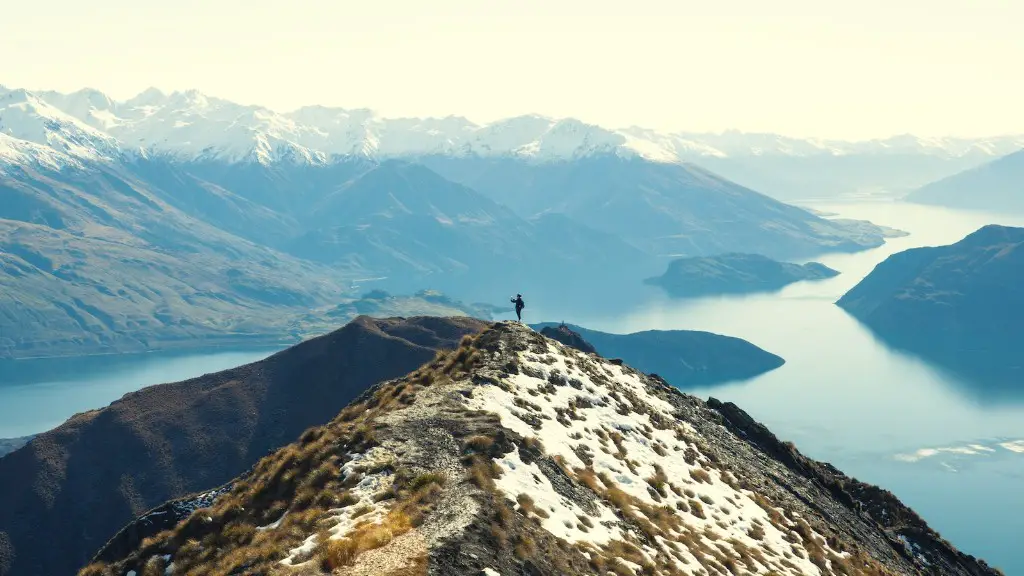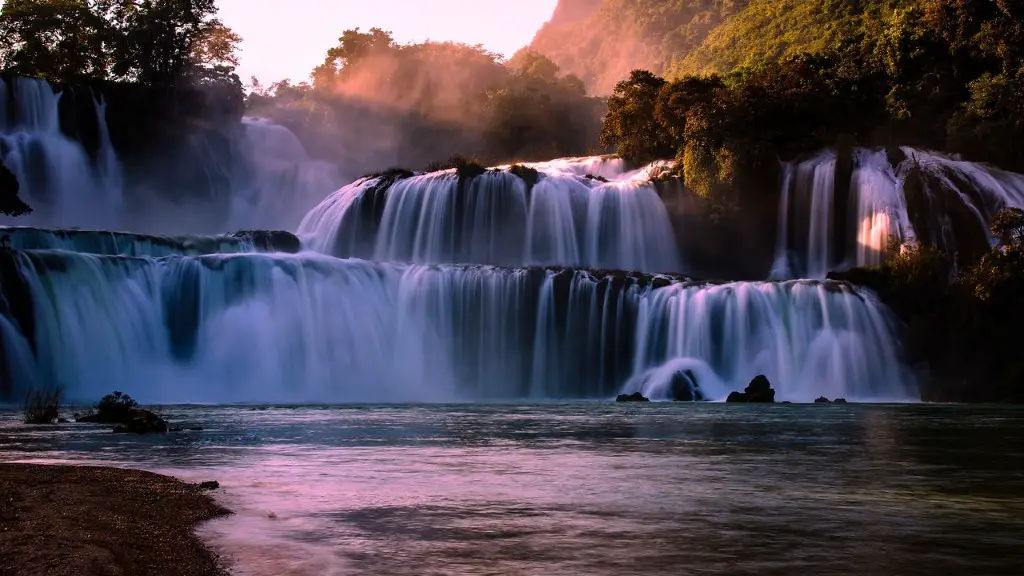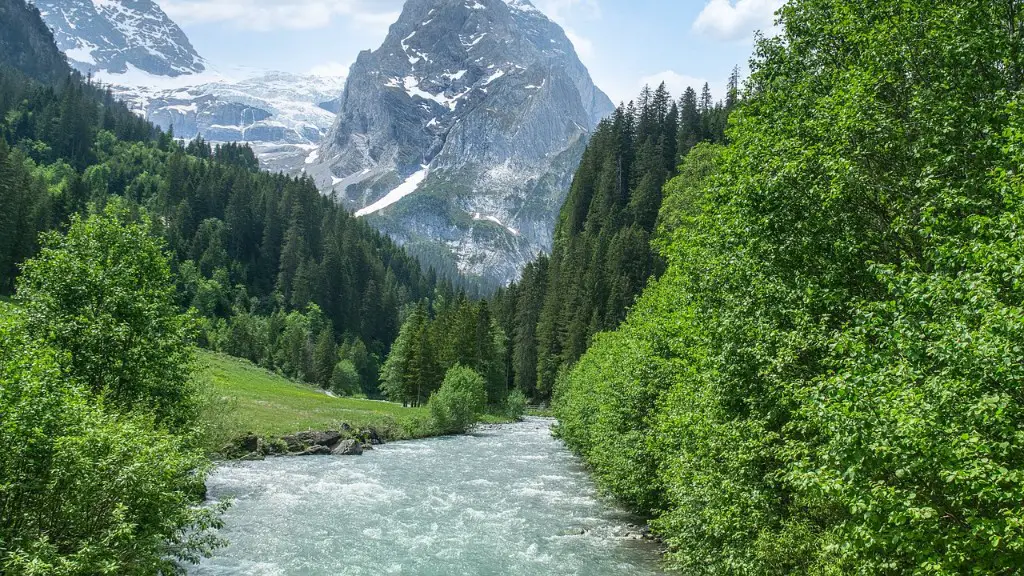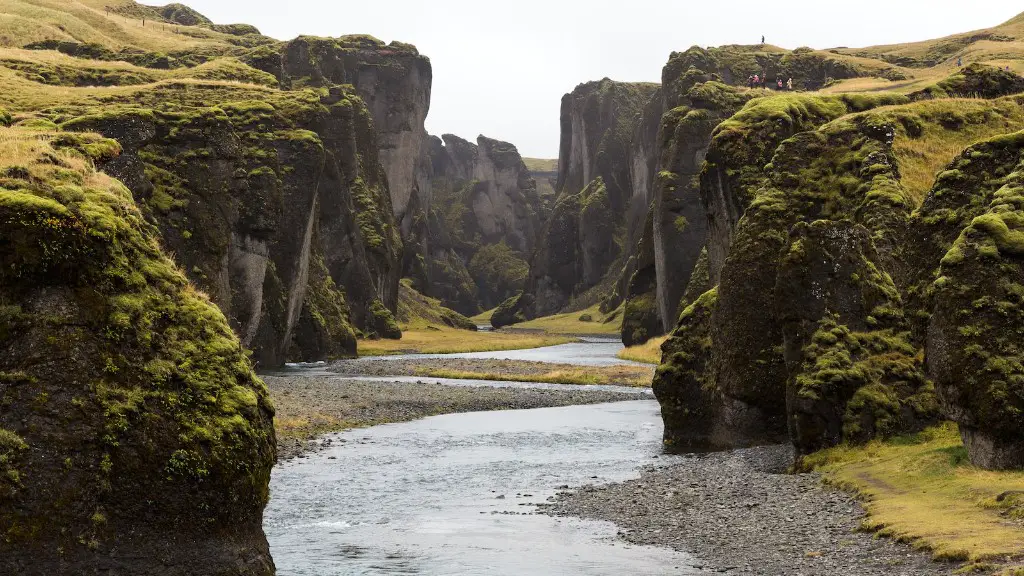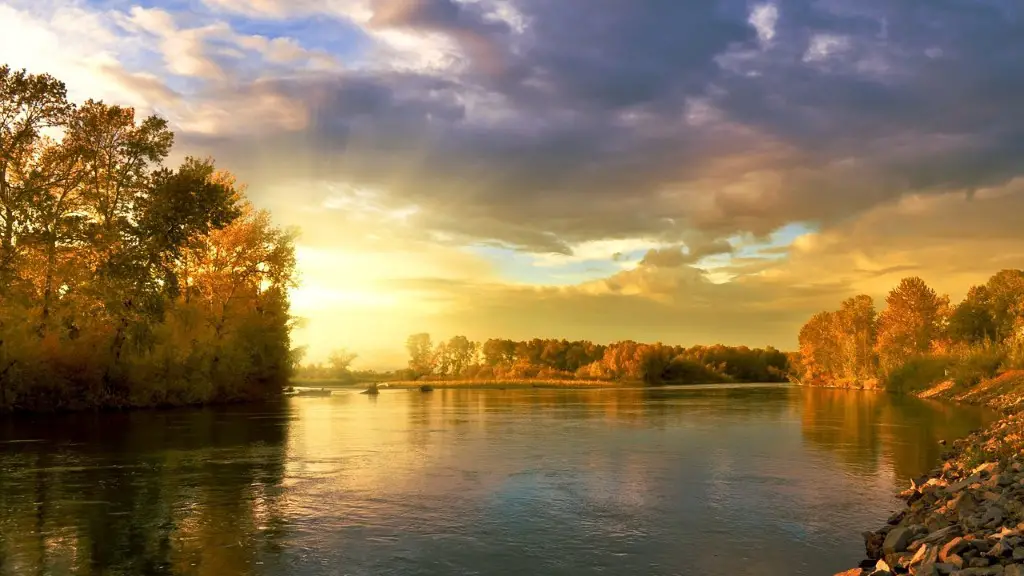The mighty Mississippi River has been America’s lifeblood since its first settlers began to explore the unexplored wilderness in the 16th century. In today’s world, the Mississippi still remains an extremely important resource for the US and the world, supplying recreational opportunities and many valuable resources.
The Mississippi is America’s largest river, stretching 2,320 miles from its source in northern Minnesota all the way down to the Gulf of Mexico. This immense river provides many benefits to the United States and its people, both directly and indirectly. Chief among these advantages is the vital role it plays in the nation’s economy.
The Mississippi is an essential waterway, linking the
Gulf of Mexico to the Great Lakes and providing access to many industries that rely on the river for transport. Shipping of goods and resources along the river supports numerous employment opportunities, while productive agricultural and rural communities rely on the river to irrigate their crops and livestock.
The Mississippi also supports tourism and recreation. Campers, fishermen, and other outdoors enthusiasts flock to the river’s banks in droves every year, drawn to its natural beauty and impressive array of wildlife. The river and its countless tributaries play host to a remarkable diversity of fish, birds, and other animals that attract nature lovers from across the country.
Of course, the Mississippi River also plays a key role in flood control. During the spring months, the river’s natural barriers help to regulate rainfall, slowing the rate at which water reaches the Gulf of Mexico. This helps to protect communities that live along the river’s banks, reducing the risk of flooding damage that could potentially cost billions of dollars.
The resources provided by the Mississippi River are also important to the energy sector. A number of hydroelectric power plants use the river’s flow to generate electricity. This provides a reliable source of energy that’s both renewable and economical, while helping to reduce America’s dependence on foreign sources of energy.
Finally, the Mississippi is a source of hydropower. When the river is flowing at its peak, dams can be used to generate electricity that can be used to power homes and businesses. This helps to make the US more energy independent and reduce overall electricity costs.
Environmental Resources
The Mississippi River also provides a vital habitat for a variety of wildlife. Its many tributaries provide a corridor for migrating species, supporting populations of fish, birds, and other animals that have adapted to their changing environment. For example, the river’s carp, bass, walleye, and catfish populations are all exceptionally strong, making the Mississippi an excellent recreational fishing destination.
The river’s wetlands are also an essential source of sustenance for these species, providing food and shelter along with a critical part of the river’s flood-control system. In addition, wetlands sequester large amounts of carbon, helping to curtail climate change and sea-level rise in the process.
The Mississippi River also provides an important source of clean drinking water to millions of people. Many rural communities depend on this source of water for their day-to-day needs. Without it, public health and safety would be put at risk.
Finally, the river’s sediments can be used for a variety of purposes. Sand and gravel are widely used for construction projects and for creating beaches along riverside areas. Clay is often collected from the Mississippi’s banks to produce bricks and tiles for homes, while organic topsoil can be used as an agricultural fertilizer.
Resource Security
The United Nations has recently declared the Mississippi River a “core resource”, highlighting the importance it plays in the lives of millions of people on both sides of the US-Mexico border. However, while the river’s positive impact is indisputable, it’s also facing serious threats.
The growing demand for water is endangering the river’s fragile ecosystem, with over-extraction threatening aquatic species and wetland habitats. The river’s resources are also under threat from a variety of sources, ranging from rampant pollution to overfishing. Unless these issues are addressed, the river’s future is uncertain.
Climate change is also having a significant impact on the Mississippi. Warmer temperatures are changing the river’s current, disrupting its seasonal cycle and creating increasingly unpredictable weather patterns. These changes are also increasing the river’s susceptibility to floods and droughts, increasing the risk of crop failure and water scarcity.
Environmental regulations are being implemented to reduce the impact of these threats, but much more needs to be done. It’s increasingly clear that managing our natural resources is essential if we want to preserve and protect the future of the Mississippi River and its valuable resources.
Benefits to Human and Wildlife
The resources provided by the Mississippi River are of significant benefit to both humans and wildlife. For humans, the river provides numerous economic opportunities. It’s an important transport route for goods, and its properties, such as water and sediment, are valuable for a variety of industries. The river is also an important source of drinking water and is home to many species of wildlife.
For wildlife, the Mississippi is a vital source of food and shelter. Its tributaries are a corridor for migrating species, while its wetlands and floodplains are home to a wide array of fish, birds, amphibians, and other animals. The river’s many species all rely on each other to maintain the delicate eco-system and food chain in which they exist.
Furthermore, the Mississippi River provides a number of other benefits to its residents. Not only does it offer recreational opportunities, but it helps to control floods and regulate weather patterns. Its hydroelectric power also helps to reduce America’s dependence on foreign energy sources. Finally, it helps to protect the environment by sequestering large amounts of carbon.
Challenges of Mismanagement
While the Mississippi River has provided numerous benefits to its people and wildlife, it’s also facing a number of threats. Over-extraction of its water for agricultural purposes, pollution, and climate change are all taking a toll on the river and its resources. Unless these issues are addressed, the river’s long-term future is in doubt.
The threat posed by water over-extraction is particularly concerning. Communities and industries have long depended on the river for their day-to-day needs, but if too much water is taken from the river, it could cause serious damage. This could affect the local environment and disrupt water supplies, putting the safety and livelihood of millions at risk.
Dwindling fish stocks are also a concern. Overfishing and pollution are taking their toll on the river’s fish populations, leading to a decline in the number of species present in the Mississippi. If these issues are not addressed, the river could become a much less hospitable place for wildlife.
The Mississippi River faces many other issues, including invasive species, erosion, and water quality. In order to protect the resources it provides, a comprehensive management plan must be put in place. This plan should aim to address the root causes of these issues, such as pollution and overfishing, in an effort to preserve the river’s vital resources.
Conclusion
The Mississippi River is an invaluable resource for the United States and the world. Its resources provide many benefits for both people and wildlife. Unfortunately, it also faces a number of threats that could damage its precious resources if not addressed. In order to protect the river and its vital resources, effective management is essential.
